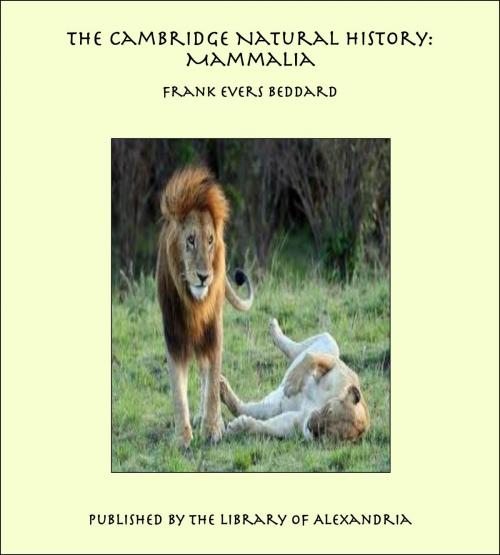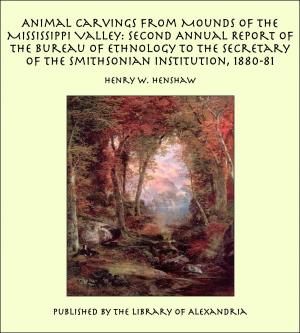The Cambridge Natural History: Mammalia
Nonfiction, Religion & Spirituality, New Age, History, Fiction & Literature| Author: | Frank Evers Beddard | ISBN: | 9781465542816 |
| Publisher: | Library of Alexandria | Publication: | March 8, 2015 |
| Imprint: | Language: | English |
| Author: | Frank Evers Beddard |
| ISBN: | 9781465542816 |
| Publisher: | Library of Alexandria |
| Publication: | March 8, 2015 |
| Imprint: | |
| Language: | English |
The Mammalia form a group of vertebrated animals which roughly correspond with what are termed in popular language "quadrupeds," or with the still more vernacular terms of "beasts" or "animals." The name "Mammal" is derived from the most salient characteristic of the group, i.e. the possession of teats; but if the term were used in an absolutely strict etymological sense, it could not include the Monotremes, which, though they have mammary glands, have not fully-differentiated teats. There are, however, as will be seen shortly, other characters which necessitate the inclusion of these egg-laying quadrupeds within the class Mammalia. The Mammalia are unquestionably the highest of the Vertebrata. This statement, however, though generally acceptable, needs some explanation and justification. "Highest" implies perfection, or, at any rate, relative perfection. It might be said with perfect truth that a serpent is in its way an example of perfection of structure: not incommoded with limbs it can slip rapidly through the grass, swim like a fish, climb like a monkey, and dart upon its prey with rapidity and accuracy. It is an example of an extremely specialised reptile, the loss of the limbs being the most obvious way in which it is specialised from more generalised reptilian types. Specialisation in fact is often synonymous with degradation, and, this being the case, implies a restricted life. On the other hand, simplification is not always to be read as degeneration. The lower jaw, for instance, of mammals has fewer bones in it than that of reptiles, and is more concisely articulated to the skull; this implies greater efficiency as a biting organ. The term highest, however, includes increased complexity as well as simplification, the two series of modifications being interwoven to form a more efficient organism. It cannot be doubted that the increased complexity of the brain of mammals raises them in the scale, as does also the complex and delicately adjusted series of bonelets which form the organ for the transmission of sound to the internal ear.
The Mammalia form a group of vertebrated animals which roughly correspond with what are termed in popular language "quadrupeds," or with the still more vernacular terms of "beasts" or "animals." The name "Mammal" is derived from the most salient characteristic of the group, i.e. the possession of teats; but if the term were used in an absolutely strict etymological sense, it could not include the Monotremes, which, though they have mammary glands, have not fully-differentiated teats. There are, however, as will be seen shortly, other characters which necessitate the inclusion of these egg-laying quadrupeds within the class Mammalia. The Mammalia are unquestionably the highest of the Vertebrata. This statement, however, though generally acceptable, needs some explanation and justification. "Highest" implies perfection, or, at any rate, relative perfection. It might be said with perfect truth that a serpent is in its way an example of perfection of structure: not incommoded with limbs it can slip rapidly through the grass, swim like a fish, climb like a monkey, and dart upon its prey with rapidity and accuracy. It is an example of an extremely specialised reptile, the loss of the limbs being the most obvious way in which it is specialised from more generalised reptilian types. Specialisation in fact is often synonymous with degradation, and, this being the case, implies a restricted life. On the other hand, simplification is not always to be read as degeneration. The lower jaw, for instance, of mammals has fewer bones in it than that of reptiles, and is more concisely articulated to the skull; this implies greater efficiency as a biting organ. The term highest, however, includes increased complexity as well as simplification, the two series of modifications being interwoven to form a more efficient organism. It cannot be doubted that the increased complexity of the brain of mammals raises them in the scale, as does also the complex and delicately adjusted series of bonelets which form the organ for the transmission of sound to the internal ear.















